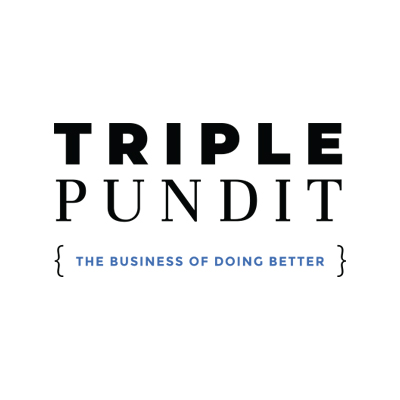SLDI co-founder Terry Mock was invited recently by the Rotary International’s Port Orford, Oregon chapter to give a presentation on the SLDI pioneering sustainable land development model project Ocean Mountain Ranch located just outside the Port Orford city limits. Rotary International and the Rotary Foundation missions offer excellent complements to the holistic SLDI Code™ sustainable development model and an inspiring and unique case history in the evolution of sustainability on both local and global scales over the last century. It’s an evolution which all sustainable development practitioners and advocates can benefit from learning about. Rotary and Sustainable Development
In 1905 the world's first service club, the Rotary Club of Chicago, was formed. By 1921, Rotary clubs had been formed on six continents. The organization adopted the Rotary International name a year later. Today, 1.2 million Rotarians belong to over 32,000 Rotary clubs in more than 200 countries and geographical areas. As the organization grew, its mission expanded beyond serving club members’ professional and social interests. Rotarians began a grassroots sustainable development effort long before the term came in vogue by pooling their resources and contributing their talents to help serve communities in need. The organization's dedication to this ideal is best expressed in its motto: Service Above Self.
In 1917 the Rotary Foundation was formed to enable Rotarians to advance world understanding, goodwill, and peace through the improvement of health, the support of education, and the alleviation of poverty. In order to better achieve this mission, in 1943 Rotary adopted a simple algorithm called “The Four-Way Test” by asking the following questions which lead to more socially sustainable end results:
- Is it the TRUTH?
- Is it FAIR to all concerned?
- Will it build GOODWILL and BETTER FRIENDSHIPS?
- Will it be BENEFICIAL to all concerned?
The Rotary Foundation has now identified six areas of focus for its grant structure moving forward. These areas reflect critical humanitarian issues and needs that Rotarians are addressing worldwide. They will align Rotary with other international development efforts and will strategically further the foundation's mission.
- Peace and conflict prevention/resolution
- Disease prevention and treatment
- Water and sanitation
- Maternal and child health
- Basic education and literacy
- Economic and community development
Rotary International embraces sustainability by developing water and sanitation projects worldwide. More than 1.1 billion people lack access to safe drinking water, and 2.5 billion people lack access to improved sanitation. Each year, 1.8 million people die from preventable diseases associated with unsafe water supply, sanitation, and hygiene. Therefore, activities in these areas are key health interventions. The United Nations Millennium Development Goals address this situation in goal 7:
Ensure sustainability. Within that goal is the target to "halve, by 2015, the proportion of the population without sustainable access to safe drinking water and basic sanitation."
The Rotary Smart and Sustainable Homes Program sets out to demystify the meaning of ‘sustainable housing,’ which is about creating appropriate housing design for our local climate and environmental setting, the varied life situations we are likely to face and our budget. Sustainable housing is defined as: Planning, designing and building dwellings to make them more socially, environmentally and economically responsible. Practically, this means they are more comfortable, livable, affordable, and accessible, responsive, healthier and cost effective to live in over the medium to long-term. The triple bottom line concept of sustainability is achieved through the application of smart design principles at the early stages of planning and constructing the home. Making these decisions upfront translates to multiple benefits for occupants by creating a home that is safer, more secure, flexible, comfortable, environmentally-friendly and cost-efficient over time.
Collaboration and the Future Vision Plan
The Rotary Foundation’s Future Vision Plan utilizes the concept of strategic partnerships with other organizations and has become a vital part of the plan’s model in order to leverage funding, advocacy, and technical expertise of other organizations to develop large-scale projects for Rotarians to implement.
The Port Orford Rotary Club has published the following article in their e-newsletter:
Ocean Mountain RanchThe viewshed from Ocean Mountain Ranch (OMR) encompasses Humbug Mountain State Park, location of a large stand of old growth trees, and Red Fish Rocks an area included in the proposed marine reserve. Translated: Spectacular.
Terry Mock spoke about the four generations of his family that now own the property, and their plans for sustainable development according to their forest stewardship management plan. This plan has been reviewed and approved by the Oregon Department of Forestry, and others.
The goal for OMR is to become a model for the world when it comes to sustainable land development. Through careful planning OMR can sustain high quality hardwood, softwood and wildlife habitat forever, and provide an exemplary model for an organic forestry/grazing operation that incorporates residential, agricultural, educational,
recreational and industrial activities.The SLDI Code: “The SLDI Best Practices System is symbolized as a geometrical algorithm that balances and integrates the triple-bottom line needs of people, planet, and profit into a holistic, fractal model that becomes increasingly detailed, guiding effective decisions throughout the community planning, financing, design, regulating, construction and maintenance processes while always enabling project context to drive specific decisions.”
If you would like to see the program he presented, please view the video here - Ocean Mountain Ranch - SLDI.

SLDI - Sustainable Land Development Initiative is a stakeholder social media association now positioned to help transform the industry that creates the very infrastructure of our civilization. SLDI is dedicated to delivering sustainable land development technology and knowledge resources to promote and enable fully integrated sustainable land development worldwide.
Read more stories by Sustainable Land Development Initiative














